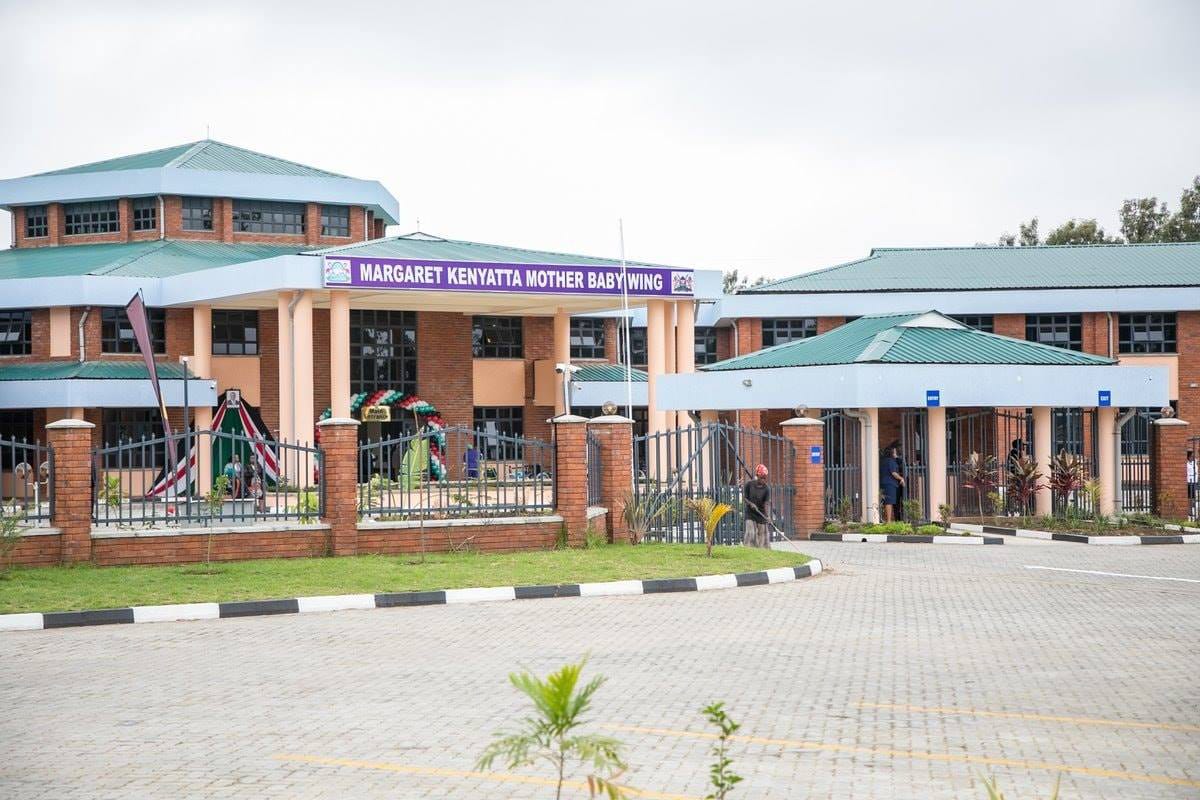By Suleiman Mbatiah
A senior County official has attributed the poor patient-centred care at Nakuru County Teaching and Referral Hospital (NCTRH), formerly Nakuru Provincial General Hospital (Nakuru PGH), to inadequate communication protocols, limited stakeholder engagement, and flawed information-sharing mechanisms.
Health Minister Roslyn Mungai made the remarks following media reports that exposed systemic failures and scandals at the facility. These included the presence of expired drugs, preventable deaths in the maternity ward, the disappearance of a child’s body from the mortuary, allegations of mistreatment of patients by security personnel, and the death of a medical intern.
In a comprehensive statement, Mungai acknowledged the concerns raised in a recent article by a Nakuru-based journalist, which highlighted leadership and service delivery issues at NCTRH. “I appreciate the concerns raised in Leleti Jassor’s recent article regarding service delivery. Our commitment to strengthening health systems and processes remains firm,” she said.
The hospital has been subject to intense public scrutiny following several alarming incidents. Last month, video footage emerged showing security guards forcibly removing patients from the waiting bay at night, prompting public outrage. Mungai said that, following this regrettable incident, the hospital had promptly trained new security personnel and reinforced its standard operating procedures.
“These reforms have brought about tangible improvements in how we handle patient interactions and manage operations in the casualty department,” Mungai noted, adding that the County is closely collaborating with the contracted security firm to ensure patients are treated with dignity.
One particularly distressing case occurred over the Easter weekend, involving Elizabeth Wairimu, who passed away while awaiting transfer to the Intensive Care Unit after undergoing a successful Caesarean section at the Margaret Kenyatta Mother-Baby Unit.
The incident provoked widespread anger, with Wairimu’s family demanding answers regarding the circumstances of her death. They voiced concerns about delays in transferring her to the ICU and questioned the quality of care she received during the critical post-operative period.
Responding to the tragedy, the minister conveyed her sympathies to the family while acknowledging broader challenges at the regional hospital, including inadequate communication with families and inefficiencies in inter-departmental patient transfers. “We deeply empathise with the family’s pain and take their concerns seriously,” she said.
The murder of Dr Laban Kiptoo Langat, a 26-year-old medical intern at Nakuru Teaching and Referral Hospital in January 2024, has further intensified concerns regarding the safety and security of healthcare professionals.
Dr Langat was found strangled near the hospital’s maternity wing. His death sparked protests and demands from the Kenya Medical Practitioners, Pharmacists and Dentists Union (KMPDU) for enhanced security measures, safe housing for interns, and a thorough investigation. A post-mortem examination revealed that he died from manual strangulation, prompting widespread alarm over safety conditions at the hospital.
An audit carried out on 8 October 2024 by Auditor General Nancy Gathungu found that Nakuru Teaching and Referral Hospital was storing expired drugs and medical supplies valued at Sh1.8 million, most of which were intended for HIV and TB treatment.
The report criticised the hospital’s weak internal controls and poor stock monitoring practices. It noted that the management was unable to account for why the expired drugs, supplied by the Kenya Medical Supplies Authority (KEMSA), had not been used or properly disposed of.
Minister Mungai clarified that the expired drugs consisted largely of donated medications affected by changes in treatment protocols and short-shelf-life donations from KEMSA. These drugs were retained pending a mandatory audit by the Global Fund before safe disposal. Nonetheless, the issue raised serious concerns about patient safety and public confidence.
Another deeply troubling case emerged in early February when the body of seven-month-old Mercy Chepng’eno vanished from the hospital’s mortuary. Mercy, who was admitted on 2 February with severe pneumonia, died the following day. However, when her deaf parents, Daniel Kipchirchir and Sharon Saidi, arrived on 6 February with a coffin for burial in Bomet, they were told her body had gone missing due to a reported mix-up.
The minister confirmed that the Directorate of Criminal Investigations (DCI) had launched an inquiry into the matter. Five mortuary attendants were dismissed, and two were subsequently charged. The incident, which sparked demonstrations from the deaf community, raised questions of negligence and possible foul play, with the bereaved family still seeking closure.
Members of the public have criticised the minister for her frequent visits to health facilities across the county, often armed with a notebook and pen. Photographs of these tours are regularly circulated via the County Government’s official platforms and WhatsApp groups.
“My visits to hospitals and primary care centres go beyond staff and client engagement,” said Mungai in her statement. “Every observation is converted into an action matrix accessible to the department team, who update it diligently.”
On Tuesday, Mungai chaired a meeting with healthcare workers’ representatives at the Margaret Kenyatta Unit, aimed at improving communication strategies. “We shall involve all our Maternal and Child Health teams, alongside other service delivery units, to review our communication protocols and ensure families remain informed during care,” she said.
Despite these reassurances, residents and affected families continue to call for greater accountability. The catalogue of incidents at NCTRH has intensified demands for an independent inquiry into the hospital’s operations. In the meantime, Mungai and her team face the uphill task of restoring public trust in an institution intended to serve as Nakuru County’s flagship healthcare provider.
Mungai also expressed her frustration with journalists, accusing them of highlighting the hospital’s failures without sufficient balance. She urged the media to report objectively and keep the public updated on ongoing reforms, stating that she was open to sharing progress but insisted that journalists must verify facts before publishing.





